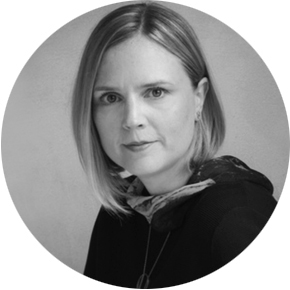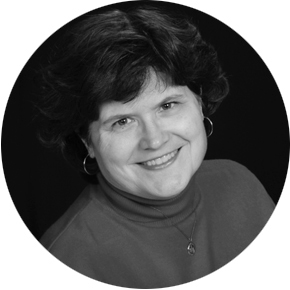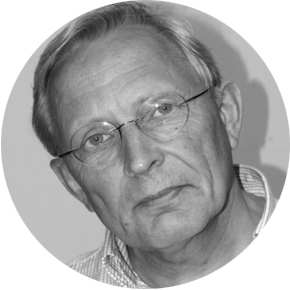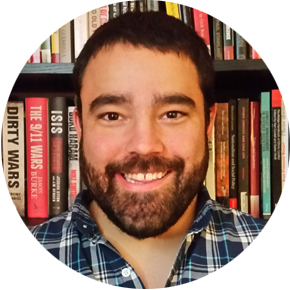The Ministry of Education, Science, Culture and Sport of Armenia has launched the revision of national and subject norms of general education.
A group of local and foreign experts will prepare the report establishing the school subjects, grading system, teaching methods, main curriculum, and the knowledge that students must possess by the time they graduate.
Hanna Alasuutari is the Global Thematic Lead of Inclusive Education and Education Specialist in the Education Global Practice at the World Bank.
Have you studied Armenian education system? Are we ready to proceed towards inclusive education?
Since joining the World Bank team working with Armenia, I have had the opportunity to work with Armenian colleagues and learn about the country’s education system. Developing an inclusive education system is a process and it can’t happen overnight. Human resources are one of the key elements in that process. Teachers, school leaders, teacher assistants, special education or resource teachers, and other professionals are needed to support learning for all children.
I’m so excited to see how Armenia is planning and implementing reforms, for example, in the areas of teacher education and curriculum development. I’m sure that within the overall education reform Armenia is ready to proceed with developing inclusive education as well.
I read the blog you had written together with two professors working in the field of inclusive education “Learning for all: the essential role of teachers in inclusive education” and you noted that the role of teacher is critical in inclusive education. How should we prepare our teachers?
It's very important that every teacher gets training and practice with inclusive education during their initial pre-service teacher education and that there are ongoing professional development programs available. In addition, groups of teachers and other professionals who have more than just general expertise on inclusive education are needed and can be resources for others. One of the most critical things in implementing successful inclusive education is that teachers not be left alone. They need the support of school leadership, other teachers, and professional resource staff.
It is important that countries learn about global guidance on inclusive education and how others implement it. But because each context is unique, countries also need to analyze their education system through an inclusive lens and plan their own inclusive education system process.
The education reform in Armenia supports learning for all students, and this is what inclusive education is all about. In addition, activities focused on expanding teacher awareness, attitudes, knowledge, and skills to serve a diversity of learners with a variety of pedagogical approaches support learning for each student.
Every student should be able to enter their classroom and be greeted by a teacher with no preconceptions who can support learning of all students.
In Armenia, for many people inclusive education mainly means students with mobility problems and the ramps. But we still have many other problems: the availability of textbooks, teaching methods…Where should we start?
It's vital that the Armenian society has a common understanding of the country’s vision for developing an inclusive education system.
Globally, Sustainable Development Goals, and especially SDG4, provide good guidance and remind us of the importance of ensuring quality education for all. Armenia has also ratified the convention of the rights of persons with disabilities. It’s important that students with disabilities are considered with a focused approach because in many systems they are not only the most vulnerable, but they are also hidden in many communities. Sometimes a family doesn’t want their child with a disability to go to school because there is ignorance and inadequate support.
Building an inclusive education system and society should be approached as a system-wide process and be part of overall reforms. The current situation should be thoughtfully analyzed, and actions proposed to address gaps and needs for improvement.
We have a lot of good examples where inclusion has been successful, but we also have examples where it could have been done in a different way. Every country has to act by itself. It's a fundamental issue: building an inclusive education which is locally designed, owned, while the society follows shared values and norms.
It was a powerful moment for me when I met a chemistry scholar in United States, who was born blind. He had been very interested in chemistry in high school, where he was told no, you cannot study chemistry or even think of becoming a scientist. Then, after graduation, he was at a conference and heard a blind professor of chemistry present. For him that moment was lifechanging. He went up to the presenter, applauded him, and asked how he could follow his example. This chemistry scholar is contributing to academia, yet some of his colleagues cannot believe he is actually conducting experiments himself. Indeed, he is, there is just a research assistant who describes them to him. If you're near-sighted, you need glasses. In his case, he needs a research assistant. In addition to changing the education system to support learning for all children, we must also emphasize the need to shift attitudes.
In Armenia people with physical or intellectual disabilities are often perceived as "unusual" phenomenon. What is the solution for the problem of such attitude and stereotypes?
I see an inclusive school as a place where we have an ethnically, linguistically, and culturally diverse student population. It is a place where students with intellectual or physical disabilities, and behavioral issues can all learn and are supported. For this to work, you need adequate human resources with the right mindset, skills, and knowledge, as well as leadership at the school level. You need an inclusive education system and structure which provides cross-sectoral support. Sometimes it’s a separate room where you can have a moment when you need to. Or an individual desk in another classroom. Or special education or resource teacher who is a mentor or coach for the teacher in the regular classroom or supports with team teaching.
This approach, when normalized, can really change the mindset of students and better prepare them for the diversity they will encounter later in life. It could be about disability, religion, ethnicity or any other identity. This diversity is part of our lives in this globalized world. Even if we are functioning locally, one way or another, global presence and interdependence is there in every society.
This year many special schools have been restructured as support centers. There is dissatisfaction about that, especially from teachers of these schools, and the parents have some concerns as well. What is the international experience? Is there a need for special schools?
Special schools and segregated systems don’t usually provide the same opportunities and rights that the mainstream institutions do when thinking of lifelong learning opportunities, skills, and knowledge needed to function and contribute to society and working life. However, it is important to remember that each context is unique. The most critical aspect is to keep learning at the center of the discussion.
There are many systems that follow the model of resource or support centers. Especially systems that have been quite segregated before. I know systems which have built national networks using former special schools to support the learning of the whole nation. Systems that have successfully implemented this type of model require a mind shift to move from a segregated arrangement towards an inclusive system. And I would add that it is important that these centers function differently than a special school. Centers should not be places where students spend all their time separately from the rest of student community.
Sometimes when countries have started closing special schools and institutions, there was a fear among the staff that they were no longer needed or might be losing their jobs. It’s important they know this is not going to happen because there is always going to be a need for their expertise. We’ve seen examples in some countries where they have closed special institutions and schools quickly and have lost that expertise.
And finally, it is important to have good collaboration between the home and the school, so that parents are listened to, informed and assured that when they are sending their children to school, they don't have to worry about the safety of their children or whether their learning needs will be met.
Lusine Gharibyan talked to Hanna Alasuutari






























Comments
Dear visitors, You can place your opinion on the material using your Facebook account. Please, be polite and follow our simple rules: you are not allowed to make off - topic comments, place advertisements, use abusive and filthy language. The editorial staff reserves the right to moderate and delete comments in case of breach of the rules.